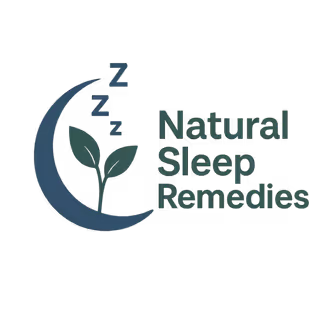When Counting Sheep Stops Working: Real Talk About Natural Sleep Remedies
When Counting Sheep Stops Working: Real Talk About Natural Sleep Remedies
Last Tuesday at 3:47 AM, I found myself doing that thing again. You know what I'm talking about—lying in bed, calculating exactly how many hours of sleep I'd get if I fell asleep "right now." Then recalculating five minutes later. Then checking my phone (terrible idea), seeing it was now 3:52 AM, and starting the whole miserable math problem over again.
If this sounds familiar, welcome to the club nobody wants to be in. The good news? You're definitely not alone, and there are actually some pretty solid natural sleep remedies out there that don't involve prescription pills or counting livestock.
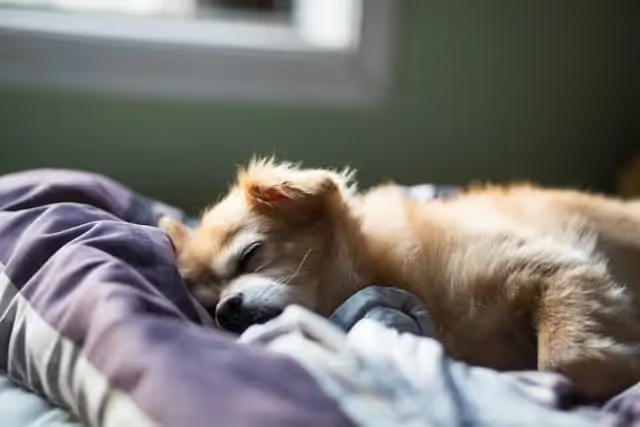
Why Your Brain Hates You at Bedtime
Here's something wild: our brains are basically running on software from 10,000 years ago, but we're asking them to function in a world that would make our ancestors' heads explode. Think about it. They went to sleep when the sun went down because, well, what else were they going to do? Scroll through cave paintings by candlelight?
Meanwhile, we're over here with our phones glowing in our faces, work emails pinging at 11 PM, and Netflix asking if we're still watching (yes, Netflix, we're still watching, stop judging). No wonder our poor brains are confused about when it's time to shut down.
The whole sleep thing should be simple, right? Get tired, go to bed, fall asleep. But somewhere between the invention of electricity and the creation of TikTok, we collectively forgot how to do this basic human function. That's where remedies for sleeplessness come in—they're basically training wheels for adults who've forgotten how to sleep properly.
Let's Talk About Melatonin (Because Everyone Else Is)
Melatonin has become the beyoncé of sleep remedies—everyone knows about it, everyone's tried it, and everyone has opinions. But here's what most people get wrong: melatonin isn't a sleeping pill. It's more like a gentle suggestion to your brain that says, "Hey buddy, it's getting dark outside, maybe we should think about winding down?"
Your pineal gland (tiny thing in your brain that sounds made up but isn't) naturally pumps out melatonin when darkness falls. At least, that's what it's supposed to do. But when you're bathing in blue light from screens until midnight, your pineal gland gets confused and thinks it's still noon in Miami.
I've got a friend, Sarah, who swears by melatonin for her crazy work schedule. She's a nurse who switches between day and night shifts, and her sleep schedule looks like someone threw a calendar in a blender. She takes 3mg about an hour before she wants to sleep, dims all the lights, and puts her phone in another room. Does it work perfectly every time? Nope. But it's way better than the zombie-like existence she had before.
The trick with melatonin is starting small. Like, really small. Some people do great with just 0.5mg, while others need more. Taking too much can actually backfire—you might feel groggy the next day or have weird dreams about being chased by giant gummy bears (just me?).
The Plant Kingdom's Greatest Hits for Sleep
Before humans figured out how to synthesize chemicals in labs, we had to get creative with herbal sleep remedies. And honestly? Our ancestors were onto something. These plants have been putting people to sleep for thousands of years, which is a pretty solid track record if you ask me.
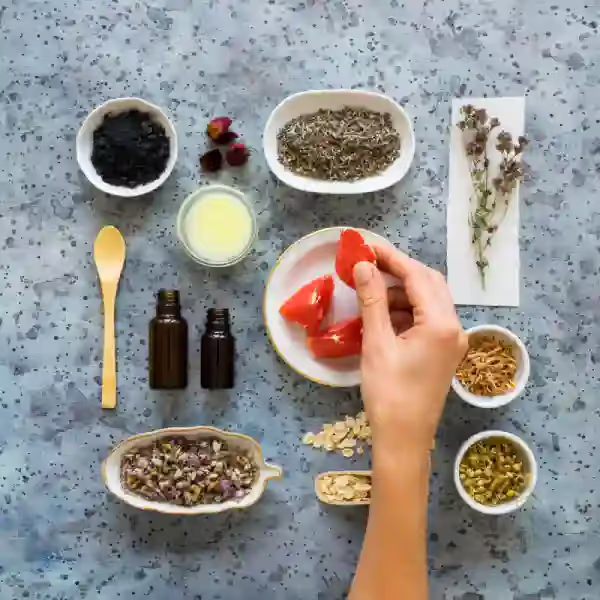
Valerian Root: The OG of Sleep Herbs
Valerian is like that friend who's a little intense but gets the job done. It's been around since ancient Greece, and even Hippocrates was writing about it (and that dude basically invented medicine, so he probably knew what he was talking about).
The way valerian works is pretty clever. It increases something called GABA in your brain—think of GABA as your brain's chill-out chemical. When GABA levels go up, your nervous system calms down, your racing thoughts slow their roll, and suddenly bed starts looking pretty appealing.
My neighbor Tom started taking valerian after his doctor suggested trying natural options before jumping to prescription sleep meds. He said the first night he tried it, nothing happened. The second night, maybe a little something. But by the end of the first week, he was actually falling asleep within 30 minutes of hitting the pillow instead of his usual two-hour tossing and turning marathon.
Fair warning though—valerian smells like dirty gym socks mixed with cheese. It's not pleasant. Most people take it in capsule form for this reason. If you're brave enough to try the tea, maybe hold your nose.
Chamomile: Your Grandma Was Right
Remember when you were a kid and your grandma made you chamomile tea when you couldn't sleep? Turns out she wasn't just making that up. This little daisy-looking flower is basically nature's way of saying "calm down, everything's going to be okay."
What I love about chamomile is that it's gentle. It's not going to knock you out like you've been hit with a tranquilizer dart. Instead, it's more like a warm hug for your nervous system. The secret ingredient is something called apigenin, which sounds like a character from Lord of the Rings but is actually an antioxidant that tells certain receptors in your brain to chill out.
Here's a pro tip: make chamomile tea part of a bedtime ritual. The act of making tea, the warmth of the cup in your hands, the few minutes you spend sipping it—all of this sends signals to your brain that sleep time is coming. It's like Pavlov's dogs, but instead of salivating at a bell, you're getting sleepy at the smell of chamomile.
Passionflower: The Underdog
Passionflower doesn't get as much press as some other homeopathic sleep remedies for adults, but it deserves more credit. Native Americans were using this stuff way before European settlers showed up and complicated everything. They knew it helped with restlessness and anxiety, which, let's be honest, are usually the main culprits keeping us awake at night.
What's cool about passionflower is that it's perfect for those nights when your brain won't shut up. You know the ones—where you're replaying that awkward thing you said in 2007 or mentally writing emails you'll never send. Passionflower gently increases GABA levels just enough to quiet the mental chatter without making you feel drugged.
I started using passionflower tea on Sunday nights when the "Sunday scaries" hit hard. There's something about knowing Monday is coming that makes my brain go into overdrive. The passionflower doesn't magically make me love Mondays (nothing could do that), but it does help me stop catastrophizing about my week and actually get some sleep.
The Mineral Magic Most People Are Missing
Here's something that might blow your mind: sometimes the best natural sleep remedies aren't exotic herbs or special supplements. Sometimes it's just giving your body the basic minerals it's screaming for. Enter magnesium, the mineral superhero that most of us are walking around without enough of.
Magnesium is involved in over 300 processes in your body. Three hundred! It's like the Swiss Army knife of minerals. And one of its many jobs is helping you chill out and sleep better. But here's the kicker—studies suggest that up to 75% of Americans aren't getting enough magnesium. No wonder we're all walking around tired and wired at the same time.
When I first heard about magnesium for sleep, I was skeptical. How could something so simple make a difference? But after dealing with middle-of-the-night wake-ups for months (you know, those super fun 2 AM wide-awake moments), I figured I'd give it a shot.
The first thing I noticed wasn't even about sleep—my leg cramps went away. I didn't even realize they were waking me up until they stopped. Then I noticed I was sleeping deeper. Like, actually sleeping through the night instead of that light, crappy sleep where every little noise wakes you up.
The form of magnesium matters, by the way. Magnesium glycinate is the gold standard for sleep because it's gentle on your stomach and absorbs well. Magnesium citrate works too but might give you the runs (learned that the hard way). Start with about 200mg an hour before bed and see how it goes.
Amino Acids: The Building Blocks of Better Sleep
This is where things get a little science-y, but stick with me because it's actually pretty cool. Your body uses amino acids to build neurotransmitters—those are the chemical messengers that tell your brain what to do. And guess what? Some of these amino acids are really good at telling your brain it's time to sleep.
L-Theanine: The Zen Master
L-theanine is the reason why tea can simultaneously contain caffeine and still make you feel relaxed. It's like the meditation teacher of amino acids—it helps your brain produce those calm, focused alpha waves without making you drowsy.
What makes L-theanine special among sleep remedies is its versatility. You can take it during the day when you're stressed (hello, Monday morning meetings) without worrying about falling asleep at your desk. Then you can take it at night to help transition from stressed-out day mode to peaceful sleep mode.
My sister started using L-theanine when she was going through a rough patch at work. She'd lie in bed with her mind racing, making lists, solving problems, basically doing everything except sleeping. She takes 200mg about an hour before bed, and she says it's like someone turns down the volume on her thoughts. They're still there, but they're not screaming at her anymore.
Glycine: The Temperature Trickster
Glycine is sneaky in the best way possible. It helps you sleep by lowering your core body temperature, which is your body's natural signal that it's bedtime. It's like tricking your body into thinking it's already asleep, so it might as well make it official.
Studies show that taking 3 grams of glycine before bed can help you fall asleep faster and wake up feeling actually refreshed instead of like you've been hit by a truck. And unlike some sleep aids that just knock you unconscious, glycine seems to improve the quality of your sleep. You spend more time in deep sleep, which is when your body does all its repair work.
I tried glycine when I was training for a marathon and desperate for better recovery sleep. The difference was noticeable within a few nights. I wasn't just sleeping more—I was sleeping better. My recovery improved, and I actually started looking forward to bedtime instead of dreading another night of tossing and turning.
The Cannabis Conversation
Okay, let's talk about the elephant in the room—cannabis-based sleep aids. Whether we're talking CBD, THC, or some combination, cannabis has entered the mainstream conversation about best natural sleep remedies. And honestly, it's about time we had an adult conversation about it.
CBD exploded onto the scene a few years ago with promises to fix everything from anxiety to arthritis. When it comes to sleep, CBD is interesting because it doesn't make you sleepy per se. Instead, it helps address some of the things that keep you awake—pain, anxiety, that general feeling of being wound too tight.
My cousin Jake started using CBD oil after a car accident left him with chronic back pain. Prescription pain meds helped with the pain but wrecked his sleep. CBD didn't eliminate his pain completely, but it took the edge off enough that he could actually get comfortable in bed. He takes 25mg about an hour before bed and says it's been a game-changer.
THC is a different beast altogether. It can definitely help you fall asleep, but it comes with some caveats. Regular use can lead to dependence, and when you stop, your sleep might temporarily get worse. Plus, while THC might help you conk out, it can suppress REM sleep—that's the stage where you dream and process emotions. So you might sleep, but it's not necessarily quality sleep.
The sweet spot for many people seems to be a combination of CBD and a tiny amount of THC. We're talking really small amounts—like 2.5mg of THC combined with 25mg of CBD. This seems to provide the sleep benefits without the high or the next-day grogginess.
Building Your Personal Sleep Solution
Here's the thing about remedies for sleeplessness—what works for your best friend might do absolutely nothing for you. Or worse, it might have the opposite effect. That's why the smartest approach is to build your own personalized sleep toolkit.
Start with the basics. I know, I know, you've heard this all before, but humor me:
First, your bedroom needs to be a sleep sanctuary. That means cool (around 66-68 degrees), dark (like, can't-see-your-hand-in-front-of-your-face dark), and quiet. Get blackout curtains. They're not just for vampires and shift workers. And if your partner snores like a chainsaw, invest in some good earplugs or a white noise machine.
Next, create a wind-down routine. Your brain needs transition time between "go go go" mode and sleep mode. This could be as simple as brewing some herbal tea, doing some light stretching, or reading a book (a real book, not your phone). The key is consistency. Do the same things in the same order every night, and your brain will start to get the hint.
Now, about those screens. Look, I get it. Scrolling through social media in bed is basically a modern hobby. But that blue light is literally telling your brain it's daytime. If you absolutely must use your phone before bed, at least use night mode or blue light blocking glasses. Better yet, charge your phone in another room. I know, radical idea.
The Food Factor
What you eat and when you eat it plays a bigger role in sleep than most people realize. That heavy pasta dinner might make you feel sleepy at first, but it could lead to uncomfortable sleep later. On the flip side, going to bed hungry can keep you awake too.
The sweet spot seems to be finishing dinner about 3 hours before bed and including foods that naturally support sleep. Turkey really does contain tryptophan (Thanksgiving food coma is real, people). Other good options include:
- Almonds and walnuts (magnesium and melatonin)
- Tart cherries (natural melatonin)
- Fatty fish (vitamin D and omega-3s)
- Kiwi fruit (serotonin and antioxidants)
And please, for the love of all that is holy, watch your caffeine intake. That 3 PM latte might be sabotaging your sleep more than you realize. Caffeine has a half-life of about 5-6 hours, which means that afternoon pick-me-up is still coursing through your system at bedtime.
When Natural Isn't Enough
Let's be real for a minute. Sometimes natural sleep remedies aren't going to cut it, and that's okay. If you've been struggling with sleep for more than a month despite trying various natural approaches, it's time to talk to a healthcare provider.
Certain sleep issues need medical attention:
- Sleep apnea (if your partner says you snore loudly or stop breathing)
- Restless leg syndrome (that creepy-crawly feeling that makes you need to move your legs)
- Chronic insomnia that's affecting your daily life
- Sleep problems accompanied by depression or anxiety
There's no shame in needing medical help for sleep. Sometimes underlying health issues like thyroid problems, iron deficiency, or hormonal imbalances are the real culprits. A simple blood test might reveal the missing piece of your sleep puzzle.
The Supplement Combinations That Actually Work
Alright, so you've read about all these individual supplements, but here's where it gets interesting—sometimes the magic happens when you combine them. It's like making a sandwich. Sure, peanut butter is good on its own, but add some jelly and now we're talking.
One combo that's gained a lot of traction is magnesium plus L-theanine. Think about it—magnesium helps relax your muscles and nervous system, while L-theanine calms your racing thoughts. Together, they're tackling both the physical and mental aspects of sleeplessness. My physical therapist recommended this combo after I mentioned my sleep issues during a session. She said half her clients swear by it, especially those dealing with stress-related tension.
Another popular pairing is melatonin with magnesium. The melatonin tells your body it's time to sleep, while the magnesium helps you stay asleep. It's particularly useful if you're dealing with jet lag or shift work. Just remember to start with low doses of each—you can always add more, but you can't un-take a supplement.
Some people have success with what I call the "herbal triple threat": chamomile, passionflower, and valerian. You can find pre-made teas with this combination, or make your own blend. Fair warning: it tastes like someone mixed grass clippings with disappointment, but it does seem to work. Add honey. Lots of honey.
The Unexpected Sleep Helpers
Sometimes the best natural sleep remedies come from unexpected places. Take tart cherry juice, for example. Yes, the same stuff your grandpa drinks for his joints. Turns out it's one of the few natural sources of melatonin. A small study found that drinking tart cherry juice twice a day increased sleep time by nearly 90 minutes.
The catch? It's got to be tart cherry juice, not the sweet stuff. And let me tell you, tart means TART. It's like someone weaponized a cherry. But diluted with some water and taken about an hour before bed, it might just help.
Then there's lavender. Not just for making your grandma's house smell like 1952. Studies show that even just smelling lavender can improve sleep quality. You can use essential oil on your pillow, drink lavender tea, or go full spa mode with a lavender bath before bed. My wife started using lavender pillow spray, and while I was skeptical at first (it seemed a bit woo-woo for me), I have to admit our bedroom smells amazing and we both seem to fall asleep faster.
Here's a weird one: honey. A spoonful of raw honey before bed can help maintain your blood sugar levels throughout the night, preventing those 3 AM wake-ups where you're suddenly starving. It also helps your brain produce melatonin. Just don't go overboard—we're talking a teaspoon, not a honey bear squeeze bottle free-for-all.
The Exercise Connection Nobody Talks About
Everyone knows exercise is good for sleep, but timing is everything. Morning workouts can help regulate your circadian rhythm, afternoon exercise can relieve stress, but evening workouts? That's where things get tricky.
Here's what I learned the hard way: that 8 PM CrossFit class might make you feel like a warrior, but it's also flooding your system with endorphins and raising your body temperature right when you should be winding down. It's like drinking an espresso and then wondering why you can't sleep.
The sweet spot seems to be finishing vigorous exercise at least 3-4 hours before bed. But gentle exercise like yoga or stretching? That's a different story. A few simple stretches or gentle yoga poses can actually help prepare your body for sleep. Focus on poses that promote relaxation—child's pose, legs up the wall, gentle twists. Nothing that makes you break a sweat or challenges your balance too much.
Walking deserves a special mention here. An evening walk after dinner isn't just good for digestion—it can help you transition from day to night. The gentle movement, the fresh air, the natural light fading as you walk—it all signals to your body that bedtime is approaching. Plus, it gets you away from screens for a bit, which is always a bonus.
The Dark Side of Sleep Supplements
Let's have an honest conversation about when remedies for sleeplessness go wrong. Because while natural usually means safer, it doesn't mean risk-free.
I learned about valerian hangovers the hard way. Took the recommended dose, slept like a baby, then spent the next morning feeling like I'd been hit by a very gentle, herb-scented truck. Some people metabolize valerian slowly, leading to morning grogginess. If this happens to you, try taking it earlier in the evening or reducing the dose.
Melatonin can cause some funky side effects too. We're talking vivid dreams that would make Salvador Dali jealous. I once dreamed I was being chased through a grocery store by a giant wheel of cheese. Was it terrifying? Yes. Did I still sleep through the night? Also yes. So... worth it?
Then there's the tolerance issue. Your body can get used to some supplements, making them less effective over time. This is especially true with things like valerian and kava. The solution? Cycle your supplements. Use one for a few weeks, then switch to another. Think of it as crop rotation for your sleep routine.
The Tech Side of Natural Sleep
I know, I know—I've been telling you to ditch the screens. But there's some sleep tech that actually supports natural sleep remedies rather than sabotaging them.
Sleep tracking apps can help you figure out what's actually working. But here's the catch—don't check them in the middle of the night. That defeats the whole purpose. Set it and forget it, then review the data in the morning. Some people find that tracking their sleep makes them anxious about sleep, which is counterproductive. If you're one of those people, skip the tech.
Blue light blocking glasses are having a moment, and for good reason. If you absolutely must use screens in the evening (and let's be honest, most of us do), these can help minimize the damage. Do you look like a dork wearing orange-tinted glasses while watching Netflix? Yes. Do they actually help? Also yes.
White noise machines or apps can be game-changers, especially if you live in a noisy area or have a partner who snores. But not all white noise is created equal. Some people prefer pink noise (think rainfall) or brown noise (deeper, like ocean waves). Experiment to find what works for your brain.
The Bottom Line on Better Sleep
After all this talk about herbal sleep remedies, supplements, and sleep strategies, here's what it really comes down to: sleep is not a luxury. It's not something you can hack your way out of needing. It's as essential as food and water, and treating it as anything less is a recipe for disaster.
The journey to better sleep isn't always straightforward. What works during stressful times might be different from what you need during calmer periods. Your sleep needs might change with the seasons, your age, or your life circumstances. That's normal.
Start simple. Pick one or two strategies that resonate with you and give them a real shot—we're talking at least two weeks of consistent use. Keep a sleep diary if you're the type who likes data, or just pay attention to how you feel. Adjust as needed.
Remember, the goal isn't perfect sleep every night. That's not realistic for anyone. The goal is to have more good nights than bad ones, to wake up feeling mostly human most of the time, and to stop dreading bedtime.
Whether you start tonight with a cup of chamomile tea, a magnesium supplement, or just putting your phone in another room, you're taking a step toward better sleep. And that's worth celebrating—just maybe not with caffeine.
Creating Your Sleep Sanctuary
Let's talk about your bedroom for a minute. If it looks like a combination office, entertainment center, and storage unit, we've identified part of the problem. Your brain needs clear signals about what each space is for, and your bedroom should scream "SLEEP" (quietly, of course).
Temperature matters more than most people realize. Your body naturally drops its temperature as you fall asleep, so a cool room helps this process along. We're talking 65-68 degrees Fahrenheit. Yes, that might mean wearing socks to bed. Yes, your partner might complain. Get them their own blanket and carry on.
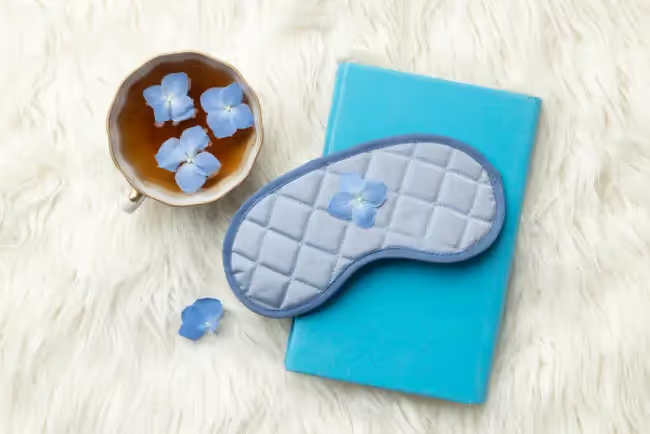
Darkness is non-negotiable. Our ancestors didn't have street lights, car headlights, or that annoying LED on the smoke detector. Even small amounts of light can interfere with melatonin production. Blackout curtains are worth every penny. Can't swing those? A good eye mask works too. Just make sure it's comfortable—you don't want to trade light pollution for feeling like your head is in a vice.
And please, for the love of good sleep, get your work out of the bedroom. That pile of papers on your nightstand? It's basically shouting "STRESS" at your subconscious all night long. The laptop on your dresser? It's a reminder of unfinished tasks. Create boundaries. Your bedroom is for sleep and, well, other bedroom activities. That's it.
The Social Side of Sleep Problems
Here's something nobody talks about—how sleep problems affect your relationships and social life. When you're exhausted, everything is harder. Patience runs thin. Small annoyances become big deals. You snap at people you love over things that wouldn't normally bother you.
I remember going through a particularly bad stretch of insomnia when my kids were young. I was trying everything—melatonin, valerian, even those weird sleep stories narrated by Matthew McConaughey. Nothing worked consistently. The sleep deprivation made me irritable, foggy, and honestly, not much fun to be around. My wife finally sat me down and said, "We need to fix this. It's affecting our whole family."
That's when I realized that finding effective sleep remedies wasn't just about me. It was about being present for the people I cared about. It was about having the energy to play with my kids, the patience to handle work stress, and the emotional bandwidth to be a decent human being.
If your sleep problems are affecting your relationships, that's actually valuable information. It means the stress and anxiety component might be bigger than you realized. This is where supplements like L-theanine or ashwagandha might help more than straight sleep aids. They address the anxiety that's keeping you up AND making you cranky.
The Money Talk Nobody Wants to Have
Let's address the elephant in the room—natural sleep remedies can get expensive. When you're desperate for sleep, it's easy to throw money at the problem. Before you know it, you've got a medicine cabinet full of half-used supplements and a credit card bill that's keeping you up at night for different reasons.
Here's my advice: start with one thing. Give it a real chance (at least two weeks, preferably a month) before adding something else. Keep receipts and pay attention to return policies. Many health food stores will take back supplements if they don't work for you, but only if you ask within their return window.
Budget-friendly options to try first:
- Magnesium supplements (usually under $15 for a month's supply)
- Chamomile tea (dirt cheap and available everywhere)
- Free sleep apps with guided meditations
- Library books on sleep hygiene (free is good)
- Exercise (walking costs nothing)
Save the pricier options like high-quality CBD or specialized sleep formulas for after you've tried the basics. And remember, the most expensive supplement in the world won't help if you're drinking coffee at 4 PM and scrolling Twitter until midnight.
When Seasons Change Your Sleep
Something I didn't realize until I started paying attention—my sleep needs change with the seasons. And I'm not just talking about that spring forward, fall back nonsense (though don't get me started on daylight saving time).
Winter is rough for a lot of people. Less sunlight means less natural vitamin D and potentially lower serotonin levels. Your body wants to hibernate, but society expects you to function normally. This is where vitamin D supplements can be a game-changer. I started taking 2000 IU daily during winter months, and the difference in both my mood and sleep was noticeable.
Summer brings its own challenges. Longer days mean more light exposure, which can delay melatonin production. Plus, if you're like me and refuse to run the AC all night (have you seen electricity bills lately?), the heat can make good sleep nearly impossible. This is when cooling strategies become crucial—cooling mattress pads, fans, even the old frozen washcloth trick.
Spring and fall are actually ideal for resetting your sleep patterns. The moderate temperatures and changing light can help realign your circadian rhythms if you let them. This is a great time to experiment with new homeopathic sleep remedies for adults or try to wean off supplements you've become dependent on.
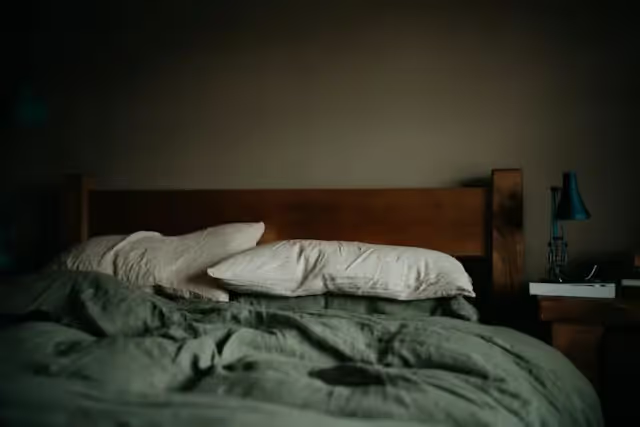
Final Thoughts from a Reformed Insomniac
Look, I've been where you are. I've tried counting sheep (they kept morphing into work deadlines). I've done the military sleep method (felt like I was preparing for battle, not bed). I've even tried sleeping in the guest room, on the couch, and once, memorably, in my car in the garage (don't recommend that one).
What finally worked was accepting that there's no magic bullet. Good sleep is like a healthy diet or a fitness routine—it requires consistent effort and the willingness to experiment until you find what works for your unique body and life circumstances.
The best natural sleep remedies are the ones you'll actually use consistently. Maybe that's a nightly cup of passionflower tea. Maybe it's magnesium and L-theanine. Maybe it's finally admitting that your afternoon coffee habit is sabotaging your sleep and switching to decaf (I know, I know, but desperate times).
Whatever path you choose, be patient with yourself. Sleep problems don't develop overnight (pun intended), and they won't disappear overnight either. But with the right tools, a bit of experimentation, and the willingness to prioritize sleep like the biological necessity it is, you can get there.
Sweet dreams aren't just for other people. They're for you too. Sometimes you just need a little help remembering how to get there. And hey, if all else fails, at least you'll be really well-educated about sleep while you're lying awake at 3 AM. That's something, right?
